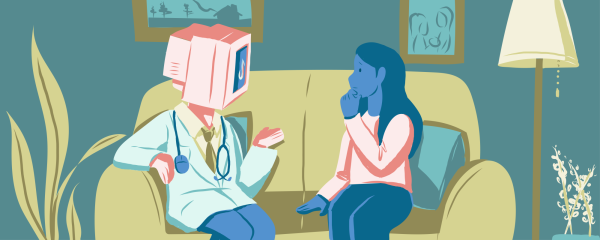Know the signs
Trigger Warning: Recognizing and preventing suicide
Dark rooms, static on the tv, the tedious sound of the clock ticking… you get used to it. Underneath your soft, warm comforter begins to feel like the only place you can truly feel safe. You don’t eat, as the thought of greasy, cold food just makes you sick to your stomach. You are losing friends. You can no longer hold a conversation with them without feeling like you are out of place or “being a bother.” You don’t go out anymore. The thought of it makes your heart race and your stomach curl.
You are now… “numb.” You can no longer cry, as your body no longer holds any tears. You can no longer laugh, as the joy you once felt has disappeared. You can no longer smile, as those muscles have lost all will.
You just stare. You think about what life could be. You see people walk by the window laughing, smiling… you just stare. You wish you could say there was some hope that that would someday be you, but honestly, you can’t.
You don’t get out of bed anymore. This is your home now. Your room is a mess, but you have no willpower to clean it. You can’t remember the last time you showered or brushed your teeth. You just feel as if you are rotting away.
You are just stuck in what seems to be an endless loop. Everyday is the same. No notifications on your phone, lay in bed, sleep all day, and then sleep all night. You hate talking to people. It’s always the phrases “it’ll get better,” “just keep pushing,” “I promise things will change.” You lose track of how many times you’ve been told to smile. No one seems to understand.
You can’t talk about your emotions without being shut out or someone trying to shove pills down your throat. It does not take long for you to feel like there’s no one on your side. Stepping out of your comfort zone just to be buried back into it, leaves a person hopeless. Once you’re hopeless, you’re gone.
“Suicide is the third leading cause of death in young people ages 15 to 24,” John Hopkins medicine wrote on https://www.hopkinsmedicine.org/health/conditions-and-diseases/teen-suicide.
Knowing the signs of suicide is an important part of todays world. Many teenagers go through depression, bullying, harassment, etc., which could possibly lead to thoughts of self harm or even death. Knowing the signs could save a friend, colleague, or even someone you just met.
“Boys are 4 times more likely to die from suicide than girls,” John Hopkins Medicine stated.
It is important to realize that even though many people see boys/men as “protectors” or the “strong ones,” anyone can be at risk for suicide. Your male friends are more likely to hide the fact that they are struggling. This is because society encourages the stereotype that they can’t be emotional. If you see signs from any gender, respond appropriately.
Not every teen is at risk for suicide, but some are more likely than others. Those being ones with “one or more mental or substance abuse problems, impulsive behaviors, undesirable life events or recent losses, family history of mental or substance abuse problems, family history of suicide, family violence (including physical, sexual, or verbal or emotional abuse), past suicide attempt, gun in the home, imprisonment, or exposure to the suicidal behavior of others,” John Hopkins Medicine writes.
Knowing the signs of suicidal thoughts is important, but what is more important is knowing the difference between someone who is upset and someone who is considering self harm. The signs for suicide are actions that would have been repeated multiple times. They stand out as unusual behavior.
Some of these indications can be “changes in eating and sleeping habits, loss of interest in usual activities, withdrawal from friends and family members, acting-out behaviors and running away, alcohol and drug use, neglecting one’s personal appearance, unnecessary risk-taking, obsession with death and dying, more physical complaints often linked to emotional distress, such as stomachaches, headaches, and extreme tiredness (fatigue), loss of interest in school or schoolwork, feeling bored, problems focusing, feeling he or she wants to die, or lack of response to praise,” John Hopkins Medicine states.
Don’t assume your friend is okay. Don’t assume that your loved one is just having a bad day. You don’t want to make that mistake the one day that they decide that life is no longer worth living.
Be there for your people. Talk to them. Show them love. Take them out to lunch. If they don’t want to talk, just sit in the room. Your presence may make a world of a difference.





